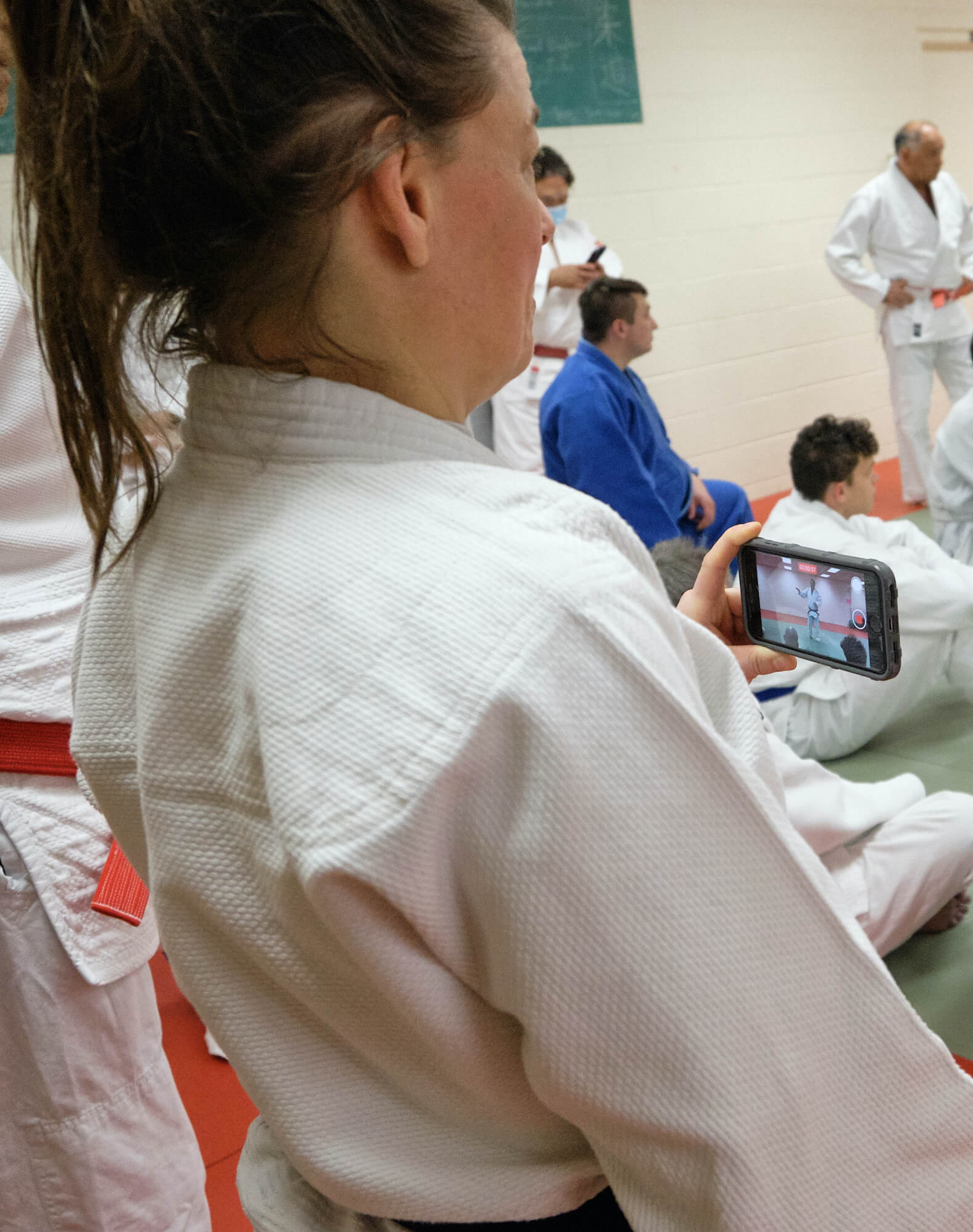Vocabulary

Learning Resources
Learning Japanese terminology is part of learning judo.
Understanding Judo Commands
A significant number of judo commands and expressions have their origins in Japan. Familiarizing yourself with Japanese judo terminology will enable you to comprehend the instructions given by your judo teacher or coach during practice.
Promotion Requirements
Acquiring proficiency in these terms is essential for successfully advancing through your assessments and achieving promotion to the next belt rank.
Acquiring knowledge of Japanese will enhance your understanding of various aspects of judo, including the names of throws, equipment, groundwork, standing judo terms, competition scores and commands, body parts, as well as the values of judo spirit and courage.
Vocabulary
Ashi – Foot
Ashi Waza – Foot techniques
Batsugun – Instant promotion
Budo – Martial ways
Bushido – Way of the warrior
Fusegi – Escapes
Dan – Black belt rank
Fusen Gachi – Win by default
Goshin Jutsu – Art of self defense
Hajime – Begin
Hando no Kuzushi – Unbalancing by reaction
Hansoku-make – Most serious penalty, disqualification
Hantei – Referee call for judge’s decision
Happo no Kuzushi – Kuzushi in 8 directions
Hidari – Left
Hiji – Elbow
Hikite – Pulling hand/usually the hand gripping a sleeve
Hiki-wake – No decision–tie or draw
Hiza – Knee
Ippon – Victory in one move, one point
Jigotai – Defensive posture
Jikan – Referee call to stop the clock
Joseki – Place of honor, upper seat
Ju no Kata – Forms of gentleness
Ju no Ri – Principle of flexibility or yielding
Judoka – One who studies Judo
Kaeshi Waza – Counter techniques
Kake – Completion or execution of technique
Kansetsu Waza – Joint locking techniques
Kappo – Resuscitation techniques
Kata – Forms
Katame no kata – Forms of grappling
Kiai – To gather spirit with a shout
Kime no Kata – Forms of Self Defense (Combat Forms)
Ki o tsuke – Attention
Kodansha – High ranking judoka — 5th dan and above
Kodokan – Judo institute in Tokyo where Judo was founded
Koshi Waza – Hip techniques
Koshi – Hip
Kubi – Neck
Kumikata – Gripping methods
Kuzure – Modified hold
Kuzushi – Unbalancing the opponent
Kyu – Student rank
Mae Ukemi – Falling forward
Mae – Forward, front
Masutemi Waza – Back sacrifice throws
Mate – Stop (wait)
Migi – Right
Mudansha – Students below black belt rank
Mune – Chest
Nagekomi – Repetitive throwing practice
Nage no Kata – Forms of throwing
Nage Waza – Throwing techniques
Nage – Throw
Ne Waza – Techniques on the ground
Obi – Judo Belt
Osaekomi – Pin, referee call to begin timing
Osaekomi Toketa – Escape, stop timing of hold
